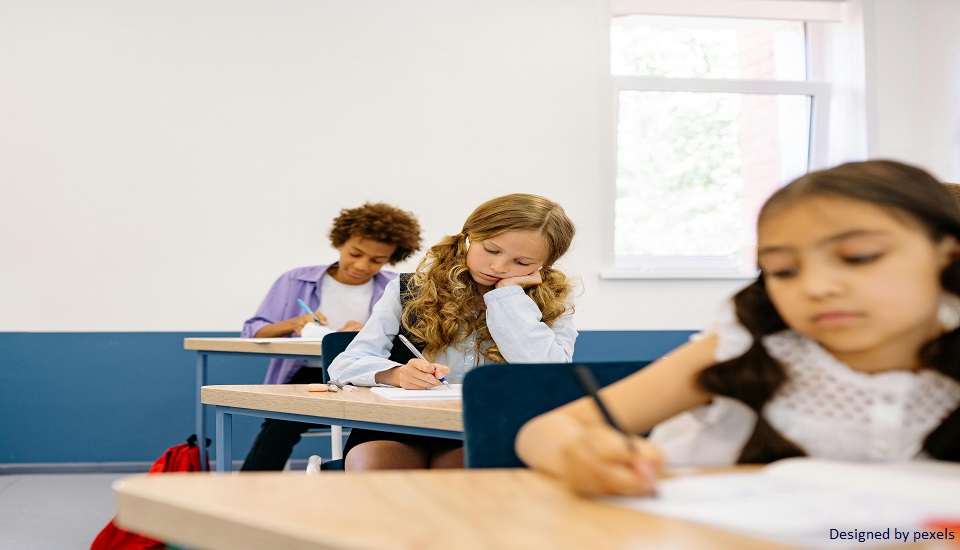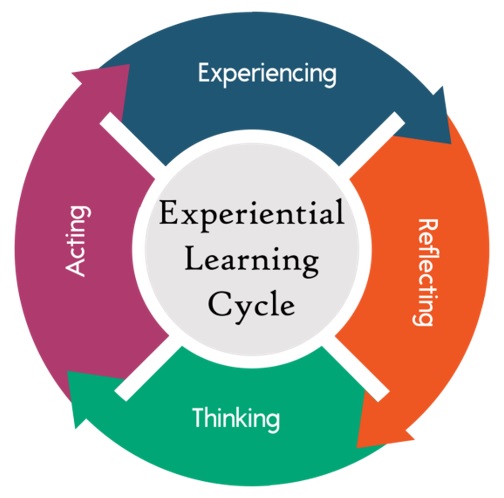How Does NEP 2020 Make Experiential Learning a Game-Changer for Students?
6th January 2025

Did you know that students who engage in experiential learning retain 75% of what they learn, compared to just 5% through traditional lectures?
This hands-on approach not only boosts retention but also enhances critical thinking and problem-solving skills. With the National Education Policy (NEP) 2020 advocating for such transformative learning methods, it's clear that experiential learning is key to shaping future-ready students. Those teachers who have pursued courses like Nursery Teacher Training in India, knows it really well.
If you also want to know more about how experiential learning can benefit students and align with National Education Policy (NEP) 2020, then we have got you covered.
In this blog post, we will explore how this dynamic approach aligns with NEP 2020 to revolutionize education.
What is Experiential Learning?

Source: pereglineglobal.com
Experiential learning is a vibrant educational method centered around "learning by doing." It’s built on the principle that students learn best when they actively partake in their education through engaging, hands-on activities. Instead of memorizing information, students dive into a practical approach where they intertwine theory with real-world applications. This methodology turns lessons into meaningful journeys, fostering deeper understanding and making education not just informative but transformative.
Stages of Experiential Learning
The stages of experiential learning are beautifully illustrated by David Kolb’s Experiential Learning Cycle, which includes four dynamic stages:
- Concrete Experience: This is the action-packed stage where students dive directly into an activity, like conducting scientific experiments or engaging in group projects, encouraging profound involvement.
- Reflective Observation: Students then reflect on their actions, considering discussions with peers and assessing what worked or didn’t, enhancing their insights.
- Abstract Conceptualization: At this stage, learners reach a phase of analysis, forming theories or broader understandings from their reflections.
- Active Experimentation: Finally, students get the chance to apply their newfound understanding in various contexts, reinforcing their learning effectively.
Alignment with NEP 2020
Let’s get to know how experiential learning aligns with National Education Policy (NEP) 2020:
- Emphasis on Experiential Learning
The National Education Policy (NEP) 2020 marks a significant evolution in the educational landscape of India, spotlighting experiential learning as a core component. NEP 2020 envisions a shift from rote memorization to fostering real-world skills through education. By focusing on interactive and participatory learning experiences, it aims to immerse students in practical applications of knowledge, making learning holistic and multidimensional.
- Integrating Experiential Learning into the Curriculum
NEP 2020 sets a clear path toward integrating experiential learning directly into the curriculum, steering away from passive learning models. Encouraging projects, internships, and hands-on fieldwork across subjects, the policy targets development of practical skills. Science education, for example, might feature more lab experiments, while social studies incorporate historical site visits, thus enriching students’ overall educational experiences.
- Activity-Based Learning
Activity-based learning is the heartbeat of experiential learning principles promoted by NEP 2020. This approach encourages educational lessons that require active student participation, where observation, reflection, and hands-on tasks bring lessons to vibrant life. Techniques like simulations, role-playing, and collaborative projects help illuminate complex concepts, offering a practical learning landscape where theory elegantly dances with practice.
Benefits of Experiential Learning for Students
Let’s get to know some of the major benefits of experiential learning for students:
- Enhanced Engagement
One of the shining stars of experiential learning is its powerful ability to pull students into a whirlwind of engagement! Unlike traditional lectures, which can sometimes drift into monotony, experiential learning transforms any classroom into an exciting adventure. Here, students actively participate in activities like thrilling science experiments, captivating field trips, or adventurous simulations.
This active involvement stirs curiosity and enthusiasm, making students eager to explore knowledge. Learning becomes an adventure where every student is a participant and not a spectator!
- Deeper Understanding
Experiential learning doesn't just skim the surface, it dives deep into understanding! By linking classroom concepts to real-world scenarios, students gain a profound grasp of what they learn. Imagine a geometry lesson where students get to build structures, not just calculate angles. This practical approach helps them to grasp complex ideas, making them not just learnable, but tangible and relatable!
- Skill Development
Beyond grasping theories, experiential learning equips students with a toolkit of skills essential for life. Collaborating on projects, they develop teamwork dynamics, hone communication skills, and boost their creativity. They become proficient problem-solvers who are able to analyze scenarios critically and innovate solutions. It’s not just learning academic content; it’s about shaping adaptable, skilled individuals ready to tackle real-world challenges with confidence!
Experiential Learning Methods
Here are some of the impactful experiential learning methods:
- Project-Based Learning
In Project-Based Learning (PBL), students embark on extended projects that demand inquiry, critical problem-solving, and collaboration. It's like a real-world mission where learning meets fun. These projects cultivate independent thinking as students explore questions, conduct research, and present their findings, creating an immersive learning atmosphere filled with excitement and discovery.
- Field Trips
Who said learning has to stay within four walls? Field trips launch learning into real-life settings! Whether it's visiting historical sites, exploring museums, or touring factories, students get firsthand experiences that enrich their understanding. They see the world beyond textbooks, connecting academic content with real-life contexts. It’s an adventure that broadens perspectives and ignites a lifelong love of learning.
- Hands-On Activities
Roll up those sleeves because it’s time for some hands-on action! These activities are the heartbeats of experiential learning, involving direct manipulation and exploration. Imagine a class buzzing with activities like building prototypes, conducting experiments, or crafting models. Students engage their senses and immerse themselves in physical challenges, discovering concepts through tactile and experiential avenues and making learning incredibly personal and impactful.
Final Thoughts
The synergy between experiential learning and the National Education Policy (NEP) 2020 offers an exciting and dynamic pathway for the future of education. This innovative approach leaves the age-old rote memorization behind, inviting students into a world where learning is as engaging and interactive as it is transformative. By embedding real-world experiences into the curriculum, students not only grasp academic concepts more profoundly but also acquire essential life skills like critical thinking and problem-solving.
By pursuing courses like National Education Policy (NEP) 2020 and by Embracing this educational evolution, you will witness your students blossom into confident, capable individuals, equipped to conquer future challenges with creativity and enthusiasm!
Written By : Abhishek











